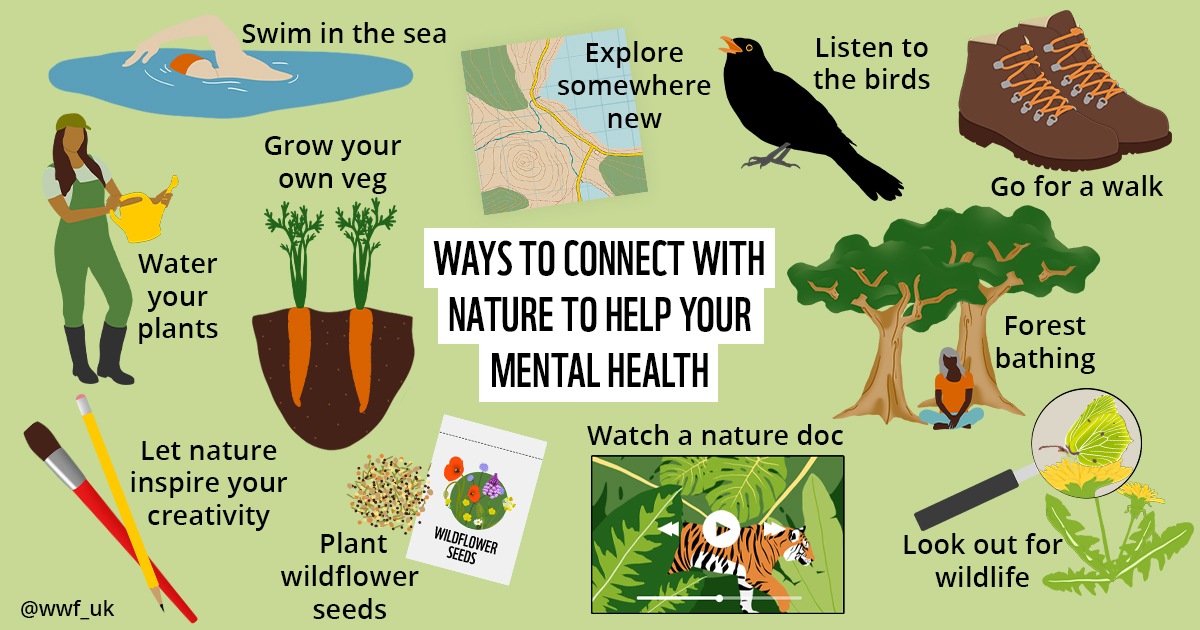Benefits of Nature on Mental Health
The Power of Nature
Nature has a profound impact on our mental health and overall well-being. In today’s fast-paced and technology-driven world, spending time in nature can provide a much-needed respite from the demands of daily life. Research has shown that exposure to nature has numerous benefits for our mental health, including reducing stress, improving mood, enhancing creativity, and promoting overall psychological well-being.
Reducing Stress
One of the most significant benefits of nature on mental health is its ability to reduce stress. The soothing sounds of birds chirping, the gentle rustling of leaves, and the calming effect of natural landscapes can all help to lower stress levels. Spending time in nature allows us to disconnect from the pressures of work and responsibilities, providing a space for relaxation and rejuvenation.
Improving Mood
Nature has a remarkable ability to uplift our mood and improve our emotional well-being. Research has shown that exposure to natural environments can increase feelings of happiness and contentment. The vibrant colors, fresh air, and natural beauty of the outdoors can have a positive impact on our mental state, helping to alleviate symptoms of depression and anxiety.
Enhancing Creativity
Being in nature can also boost our creativity and problem-solving abilities. The peaceful and serene environment of natural settings allows our minds to wander and explore new ideas. Studies have found that spending time in nature can enhance cognitive function, improve attention span, and stimulate innovative thinking. Whether it’s a walk in the park or a hike in the mountains, immersing ourselves in nature can spark new insights and fresh perspectives.
Promoting Psychological Well-being
Nature plays a vital role in promoting overall psychological well-being. Being in natural environments has been linked to reduced symptoms of depression and anxiety, increased self-esteem, and improved overall mental health. The connection we feel with nature can provide a sense of purpose and belonging, fostering a positive outlook on life.

In conclusion, the benefits of nature on mental health are undeniable. Spending time in nature can help reduce stress, improve mood, enhance creativity, and promote overall psychological well-being. Whether it’s a walk in the park, a day at the beach, or simply sitting in a garden, immersing ourselves in nature allows us to reconnect with ourselves and find solace in the beauty of the natural world.
Frequently Asked Questions Benefits of Nature on Mental Health
1. How does spending time in nature improve mental health?
Spending time in nature has been shown to reduce stress levels, improve mood, increase feelings of calmness, and enhance overall mental well-being.
2. Can being in nature help with anxiety and depression?
Yes, being in nature can help alleviate symptoms of anxiety and depression. It promotes relaxation, reduces rumination, and increases exposure to natural light, which can positively impact mental health.
3. What are the cognitive benefits of connecting with nature?
Connecting with nature can improve cognitive function, including attention span, memory, and creativity. It allows the brain to rest and restore, leading to better focus and enhanced problem-solving abilities.
4. Are there any physical health benefits associated with spending time in nature?
Yes, spending time in nature can have physical health benefits such as lowering blood pressure, reducing the risk of heart disease, boosting the immune system, and improving sleep quality.
5. How much time in nature is recommended for mental health benefits?
While any amount of time in nature can be beneficial, studies suggest that spending at least 120 minutes (or 2 hours) per week in nature can significantly improve mental health and well-being.
6. Can nature-based activities like gardening or hiking have a positive impact on mental health?
Absolutely! Engaging in nature-based activities like gardening, hiking, or even simply walking in a park can reduce symptoms of stress, anxiety, and depression while promoting a sense of connection with the natural world.
7. Are there specific natural environments that are more beneficial for mental health?
While all-natural environments have some positive impact on mental health, studies suggest that green spaces with trees and vegetation, such as parks or forests, tend to have greater benefits compared to urban environments.
8. Can nature exposure help children and adolescents with their mental well-being?
Yes, exposure to nature is particularly beneficial for children and adolescents. It can improve attention, reduce symptoms of ADHD, and enhance overall emotional well-being.
9. How does nature positively affect our stress levels?
Nature has a calming effect on the body and mind. It helps reduce cortisol levels (the stress hormone), lowers heart rate, and induces relaxation, leading to a decrease in overall stress levels.
10. Are there any long-term mental health benefits associated with regular contact with nature?
Regular contact with nature has been linked to long-term mental health benefits, including reduced risk of developing mental illnesses, improved resilience, and increased life satisfaction.




